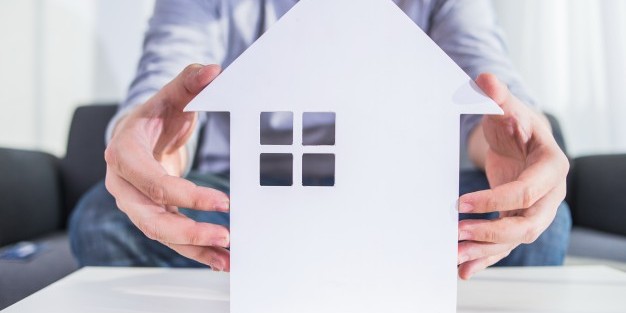
How does one decide whether to buy a house now, later, or rent it instead? Good price and affordability are not sufficient reasons to buy a property. Find out why Developers and real estate agents are arguing that property prices have bottomed out and prospective homebuyers should go ahead and realize their dream of owning a house now.
The argument comes in the backdrop of persistent buzz in the sector that property prices have corrected. However, does it make sense to buy a property now, just because prices have come down? Not always. When not to buy Apart from price, there are various other factors to consider while buying a house. And if these factors matter to your situation in life, you may find that staying on rent may be more advantageous to you than buying a house now. Flexibility:
If you believe that your career or business is not at a point where you can decide where you will be staying for the next several years, you should consider staying on rent rather than buying a house now and then struggling to sell it a few years later. “It is not necessary to own a house right in the beginning of your career. Most people today would go to any place where their career would take them. Hence, a home bought in one place may not serve them when they move to another location to pursue their career. Affordability: In pure financial terms, renting a house could be better than buying it.
Typically, annual rent of a house is 1.5-2.5% of that property’s price in a metro. “Financially, if the rent you pay is lower than 2-3% of the value of the property, you could continue to stay on rent. Comfort: Often, the house one can afford to buy is not the most suitable—be it in terms of location or size. A young family may want a house next to their children’s school, and forego buying a better house that may be far. If owning a house is not a life goal, renting can make life easier in this and many other situation. Renting can allow you to live in a place that is near your work place or has other amenities that are important to you. Therefore, if the house that suits your needs is within your rental budget, but beyond your buying capacity now, it is better to rent rather than choose a property or location that does not suit you. Long-term commitment: Buying a house on loan is a long term commitment. You have to be able to withstand situations such as fluctuations in interest rates on home loan or even loss of job for some time; and still continue to pay your EMIs regularly. If you believe that you may be susceptible to uncertainties in the near- to medium-term future, the house could become a huge liability rather than an asset.
Often, people stretch and take large loans to buy their house. But before doing so, one should find out “what is the backup plan in case you have no income for (even) 1 month to pay the EMI. If renting, you can move to a lower rent house in case of a financial crisis. Also, when a house is sold in distress, the seller often incurs a loss on it. Other life goals: Buying a house is the biggest investment in most people’s lives. However, in funding that house, one must remember not to decimate the corpus meant for other life goals. “There are quite a few things that would require money—marriage, children’s education, travel. All of these are needed to live a life.One should not sacrifice them to own a house.
When to buy However, buying a house makes sense in many scenarios, regardless of the property’s price. If you find a suitable house and can afford to buy it, you should go for it, keeping in mind the factors mentioned below. Stability: You can consider buying a house if you are sure to stay at a particular location or city for more than 5-7 years. Moreover, in the long run, your rent is certainly going to increase at a faster rate than your EMI. In fact, the EMI may even come down going forward, depending on the overall interest rate scenario.
Financial stability: If you have sufficient funds to make a larger down payment (more than the mandatory 20%) without compromising on your other financial goals, buying a house makes sense. Tax benefit: Given that there are considerable tax benefits on repayment of home loans, the cost of borrowing can come down by 2% to 2.5% for those in highest tax bracket, provided the total home loan is Rs25-30 lakh. This is because the benefit on interest repayment is capped at Rs2 lakh a year, so this benefit diminishes for bigger home loans.
Low home loan rates: In last couple of years, home loan rates have come down by about 2%, bringing the EMI down by about Rs3,400 on a home loan of Rs25 lakh with tenure of 20 years. So, coupled with tax benefit, buying a house would be more beneficial in certain segment now, than a few years ago. Creating an asset: If your finances are in good shape and property prices are not exceptionally high in your choice of city and location, you may opt to pay EMIs rather than monthly rents, as the former helps you to create an asset. Above are some of the factors to consider while buying a house. You need to evaluate them and see which ones are more relevant to you and your particular situation now before deciding whether to buy now, or live on rent.
